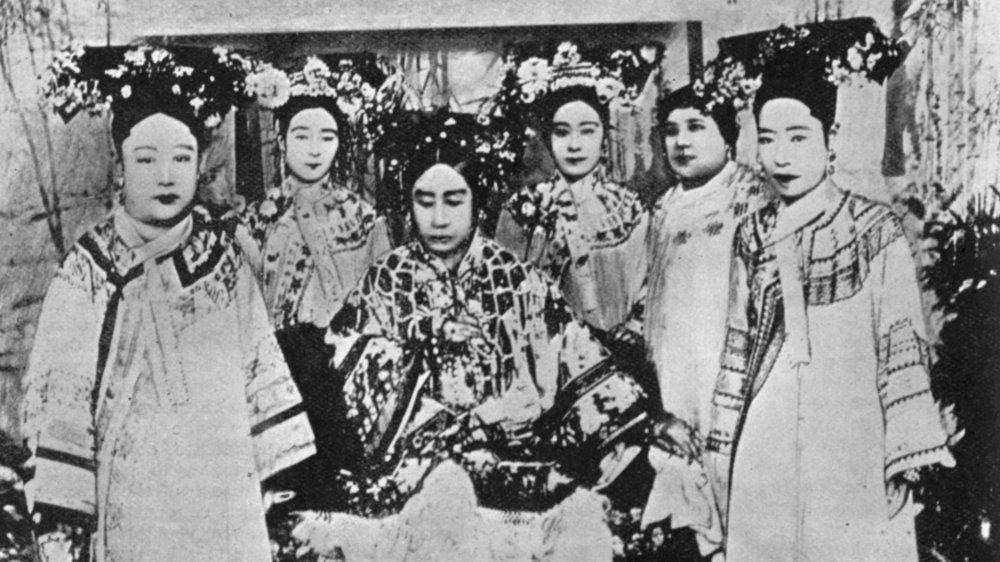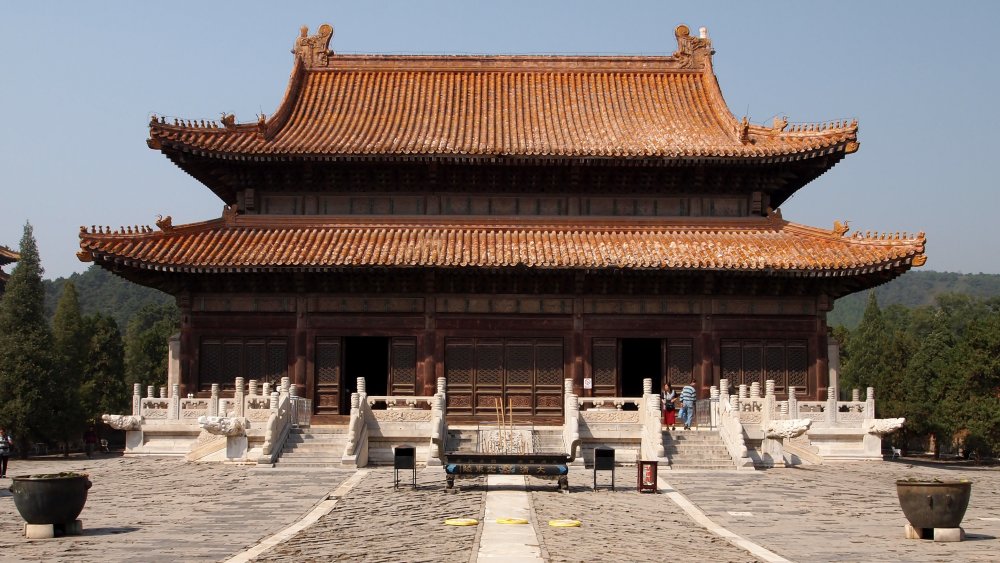The Rise Of Empress Cixi, China's 'Shadow Queen'
The end of the Qing Empire in China began its decline at the start of the 20th century, but one woman fought tooth and nail to delay it. She is Dowager Empress Cixi. Empress Cixi, known as the Shadow Queen and the Dragon Lady, is a controversial figure in Chinese history. At once revered, feared, and hated, she worked to consolidate power even as rebellions broke out across her empire.
According to Smithsonian Magazine, Cixi was born Yehenara in a Manchurian clan in 1861. She went to the Forbidden Palace at 16 to be part of the emperor's harem. At first, Yehenara was a low-ranking concubine but one day, the emperor heard her singing and ordered her to visit him. Yehenara became the emperor's favorite and soon, she was renamed Cixi (or Tzu Hsi), meaning empress of the western palace. She gave birth to the emperor's only surviving son, writes the South China Morning Post, and when the emperor lay dying, he named Cixi one of his regents.
Her son, at the time of his ascendancy, was only five. Cixi relished the power that came with her regency, but she relinquished this position when the new emperor turned 17. He would die a mere two years later. Cixi, by this time more politically savvy, managed to be named regent again for her three-year-old nephew Guangxu.
She literally ruled behind a screen
It was during her regency for Guangxu that Cixi gained her reputation as a ruthless leader. Smithsonian Magazine explained her son's concubine was pregnant at the, time but died under suspicious circumstances. Rumors abounded that Cixi ordered her death. It was a tumultuous time; several factions were gunning for power. Before her son died, she gathered supporters and overruled her son's other regents and sentenced them to "death by a thousand cuts."
Despite coming of age, the emperor Guangxu continued to rule under Cixi's auspices. She told him what to do in the guise of advice and frequently demoted or exiled advisors she felt were undermining her power. But, after China's defeat at the hands of the Japanese army in 1894, Guangxu began a series of reforms to improve the military, writes China Highlights. But the reforms were poorly executed and angered many in China. Horrified, and perhaps angry that Guangxu ignored her, Cixi had the emperor exiled. Guangxu ruled in name alone while Cixi acted as de facto leader until her death in 1908. Her death came only a day after Guangxu passed after being poisoned.
Cixi continues to divide public opinion. People didn't approve of her ambition and her political savvy. She was also cruel, prone to mistreating enemies and allies alike. Historians believe many of the stories about Cixi, most of them written by a British journalist found to have forged many documents from the imperial palace, had much to do with a perspective of distrust of women in power at the time.

